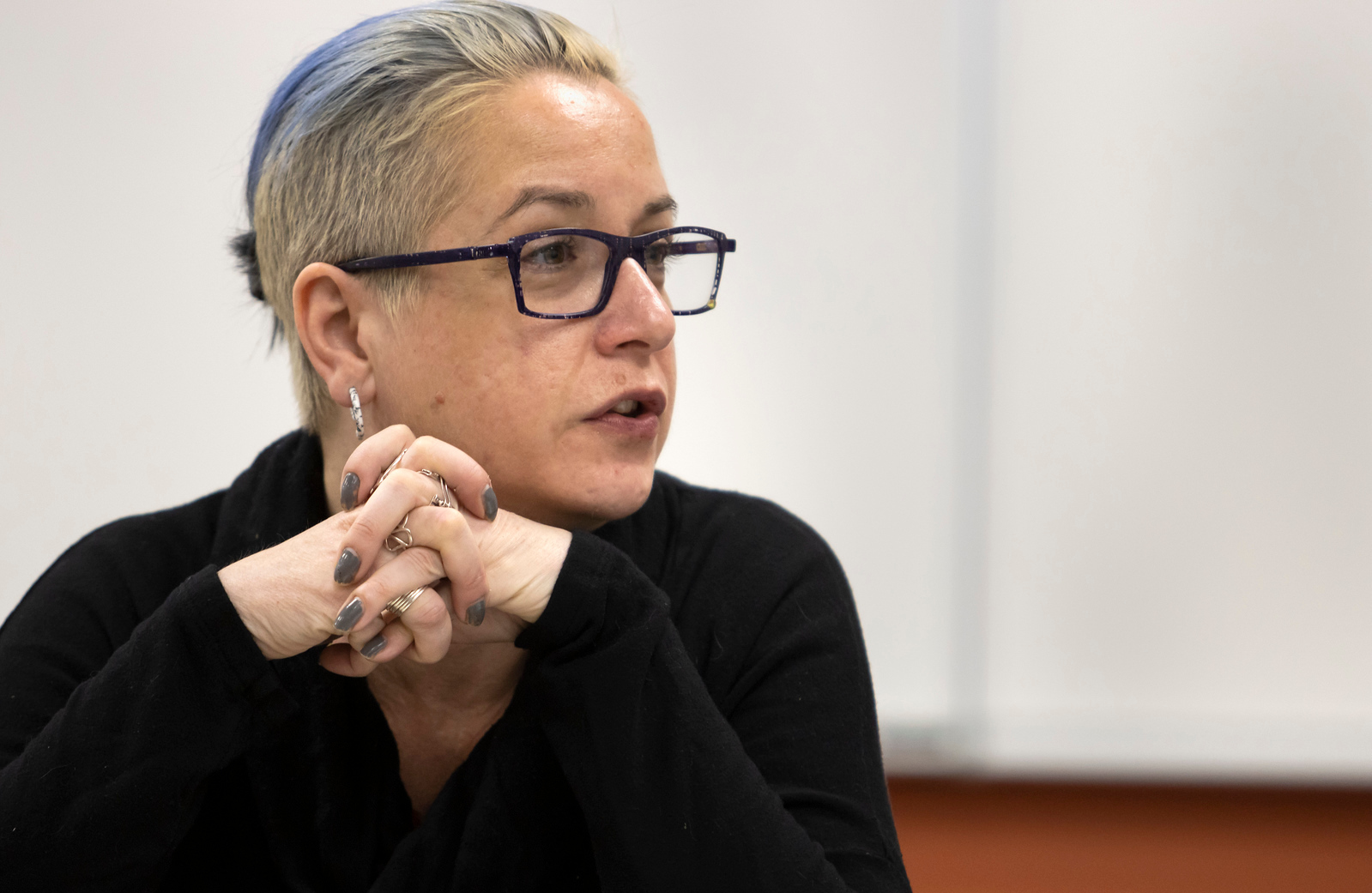“I think most people really like trans people when [they] meet them,” said Helen Boyd Kramer.
Affinity Group Coordinator and Instructor of Gender Studies Helen Boyd Kramer is one of a few Lawrence staff with a Wikipedia page, although she describes herself as simply “known” in the trans community and not truly famous. As Affinity Group Coordinator, they work with different students, staff, faculty and alumni groups who are organized by affinity or intersectional identities.
Kramer recalled working on their own degrees in college, where a lot of their literature was focused on gender; when she met her wife years later, she was fluent in feminist thought and had many friends who were gender non-conforming.
“One of the things I found myself doing was translating these ideas to the people that really needed them,” Kramer said.
Kramer’s wife, Rachel Crowl, had not yet transitioned when she met Kramer, and Kramer remembered struggling to accept dating a woman, even though she had been fine dating someone who “crossdressed,” a term Kramer admitted is outdated in many ways. Kramer’s second book, “She’s Not the Man I Married,” is about Kramer’s exploration of gender, gender theory and her own gendered experience. They recall being approached to this day about their books.
“Having tens of thousands of [my own] books in the world is still just a lovely, weird feeling,” said Kramer.
Though Kramer loves teaching gender studies, she was not always interested in the field; she recalled a time during college where, after dropping a class, she had to find another. Although she had been reluctant to take classes on gender and women up to that point due to her identification with women not being strong, the only class she could take was a 20th century women writers course. She realized that she would always be a woman writer, which made her angry and question why it had to be true. Why did these categories exist? That was her “click moment.”
As an educator, she finds herself teaching people who have hit a wall with gender, including people struggling with their own gender or realizing that their rights, such as the right to abortion, are being taken away. Other students in her classes are aspiring psychologists and want to understand LGBTQ+ struggles better, and some simply have trans friends, family and/or partners and want to understand them better.
“Gender studies is really a question of why and how gendered oppression happens […] there are bigger questions [about identity] that I would argue gender studies has to include,” Kramer said.

As someone who works at a school that is often considered a safe haven for queer people, Kramer pointed out that, as a private school, Lawrence doesn’t have to deal with as many attacks from state Republicans as the University of Wisconsin system. She also recalled Lawrence providing her and her wife with medical insurance in 2008, long before same-sex marriages were nationally recognized.
“What makes a place safe is structurally important things,” said Kramer. “Making sure [health] coverage is available for LGBTQ+ people […] I would say it’s a cultural shift […] having a culture where you don’t assume the gender of anyone’s spouse, or anyone for that matter.”
Much of Kramer’s work takes place outside of Lawrence. She worked with District 12 Alderperson Nate Wolff, who is gay, to hold National Coming Out Day celebrations in Appleton. When she saw that every business on College Avenue had put up a pride flag for National Coming Out Day, it made her feel like her work was making a difference.
“It wasn’t that anyone else didn’t want to do that; it was a matter of everyone doing it at the same time,” Kramer said.
Kramer characterized the anti-trans movement in the United States as infuriating, disappointing, disheartening and saddening. They pointed out that trans rights, similar to abortion rights, are popular with the majority of American citizens, and that taking those rights away is not particularly democratic. She added that trans people are not the only community currently under attack, as there is also a push for more voter suppression, among other types of oppression and discrimination.
“What they’re doing is so egregiously awful […] and the deep feeling of anxiety and concern is tremendous; the tremendous amount of anxiety I experience every day, worrying about friends in other states […] it’s very difficult to just not be full of rage every day, especially because it’s so cynical; it’s preying on a tiny minority of people who are also under so much economic stress and mental health stress […]it’s just infuriating in such deep ways,” Kramer said.

